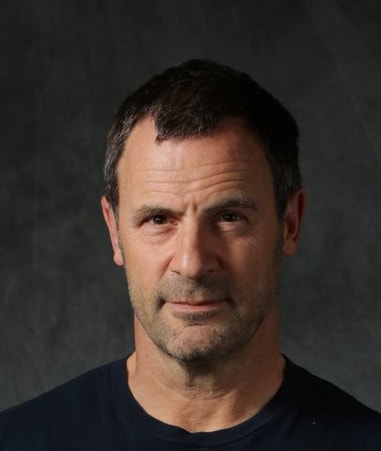MARTIN KIRBY
Martin Kirby earned his B.Sc. in physics and education at London University, taught physics in England for eight years, came to the US and taught for 33 years at Hart High School (2,300 students) near Los Angeles. Starting a couple of years ago, he now advises the new AP physics teachers in several districts. He has been an AP reader, table leader or question leader for over 27 years, a member of the AP Physics Exam Development Committee for eight years, a College Board consultant for 27 years, a presenter of one-week summer workshops for 25 years.
He’s written physics apps, helped in the development of textbooks and written their allied curricular materials.
Martin typically taught 4 AP Physics 1 classes and 1 AP Physics C (Mechanics and E+M). Like many other physics teachers, he had an average class size of 39, a budget of $800, and a windowless 1960s classroom built for 24 students: thus, he is familiar with 'real world' problems of real physics teachers. To relax he rides a bike, avoids work and plays violin.
Martin can be contacted at [email protected]
He’s written physics apps, helped in the development of textbooks and written their allied curricular materials.
Martin typically taught 4 AP Physics 1 classes and 1 AP Physics C (Mechanics and E+M). Like many other physics teachers, he had an average class size of 39, a budget of $800, and a windowless 1960s classroom built for 24 students: thus, he is familiar with 'real world' problems of real physics teachers. To relax he rides a bike, avoids work and plays violin.
Martin can be contacted at [email protected]
COURSE DESCRIPTION
In addition to the usual goals of a Summer Workshop in AP Physics, we’ll emphasize skills that, though not new to most AP Physics teachers, will be exercised more by the new course, such as an increased focus on inquiry-based learning, more writing (claim, evidence, reasoning, etc.), new styles of questions, and an expanded lab component. We’ll learn a lot from each other too; our different approaches, lessons learned, and how we’ll change for the future.
In addition to the below, we will discuss and become familiar with the format of the AP Physics 1 Curriculum Frameworks, Guides, and the AP Classroom Platform.
Marin on the Bay AP Physics 1 Summer Institute:
Goals and Objectives
To familiarize participants with…
Monday
Morning
Afternoon
Content: A close examination of what and how to teach in the first four weeks of the course with a lab
Tuesday
Morning
Afternoon
Content: Rotational kinematics and dynamics with a lab
Wednesday
Morning
Afternoon
Content: Circular Motion, Gravitation (force, PE and orbits), Torque, with a lab.
Thursday
Morning
Afternoon
Participants and presenter share useful and/or interesting demonstrations
In addition to the usual goals of a Summer Workshop in AP Physics, we’ll emphasize skills that, though not new to most AP Physics teachers, will be exercised more by the new course, such as an increased focus on inquiry-based learning, more writing (claim, evidence, reasoning, etc.), new styles of questions, and an expanded lab component. We’ll learn a lot from each other too; our different approaches, lessons learned, and how we’ll change for the future.
In addition to the below, we will discuss and become familiar with the format of the AP Physics 1 Curriculum Frameworks, Guides, and the AP Classroom Platform.
Marin on the Bay AP Physics 1 Summer Institute:
Goals and Objectives
To familiarize participants with…
- the AP Physics P1 curriculum framework and the AP science practices.
- the expectations for students and teachers.
- the depth and breadth of the physics content.
- methods and strategies that will increase their student’s success.
- relevant demonstrations and experiments.
- the grading of the exams.
- how to organize and run an AP Physics program.
Monday
Morning
- Introductions
- Equity and Access
- Overview of AP program, the four AP Physics exams, and the AP physics 1 program in particular
- Prerequisites, pass rates and what to expect from the students
- AP Central
- The AP Audit and how to complete it
- Introduction to the Course Exam Description (CED) and its probable future changes (2024)
- AP Resources and supports
- Brief introduction to the lab requirements
Afternoon
Content: A close examination of what and how to teach in the first four weeks of the course with a lab
Tuesday
Morning
- Deeper dive into the CED… Big ideas, Enduring Understandings, Essential Knowledges, and Learning Objectives. Science Practices.
- Exam format
- Sources of past AP Physics 1 exams
- Take an exam, with discussion
- Scoring guidelines
- Grade real student responses from the 2022 AP1 exam
- How to answer different types of question (Lab, Qualitative/Quantitative, Paragraph Length Response)
- How the test is developed and graded in Kansas City
- Exam resources
Afternoon
Content: Rotational kinematics and dynamics with a lab
Wednesday
Morning
- How to start a course
- Pacing and sequence of AP1 teaching
- Interpreting the Instructional Planning Report (which teachers receive after their student’s tests have been graded)
- Instructional strategies, including TIPERS and the AP1 Physics workbook
- A basic guide to AP Classroom and its uses
- AP Physics 1 daily videos
- Inquiry-based instruction
- Labs: Sources of labs, lab expectations, purpose of labs, online labs, recommended labs, lab equipment, minimum lab equipment
Afternoon
Content: Circular Motion, Gravitation (force, PE and orbits), Torque, with a lab.
Thursday
Morning
- Lab skills
- Demonstrations
- Selecting course materials: textbooks, review guides, online resources
- Student selection
- Motivation
- Homework
- Unit tests and finals
- Different ways of grading students work
- Connecting with other AP physics teaching community
- Review for the AP test
Afternoon
Participants and presenter share useful and/or interesting demonstrations
